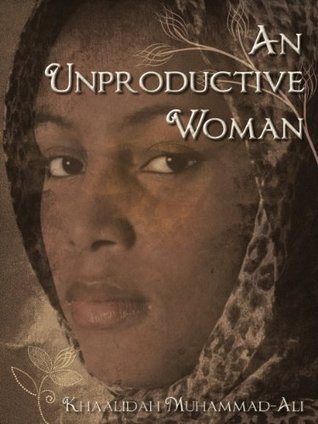I’m always attracted to books set in distant
places and whose protagonists live cultures very different from mine. These are
stories that open you mind, which teach you to see what is different and to
respect it, even if it appears alien and contrary to the way we see, to what we
consider to be right. And, being a women, I like the stories of this kind told
from the point of view of a woman, which often lead me to note that, although
the differences, however, there are points in common, which are universal.
With these expectations, I ventured into the
reading of “An unproductive Woman”. From the title you can imagine what it is
about. It is the story of a woman who cannot have children, but at the same
time it is much more complex than that.
It is set in Senegal
It’s already a difficult subject to deal with
for a western woman, but it has its own charm. It’s interesting to learn the
way of thinking of those women for whom it is normal to marry a man much older
than them, for whom the presence of other wives is something that can happen,
though they do not like so much the idea, but they tend to adapt anyway. It’s
interesting to see this type of family dynamics and all the problems of
jealousy, quarrels, and fights that can be observed.
I must specify that we are not faced with
situations that involve abuse. The women told in this novel are women free to
do what they want. The only limits they have are those dictated by their own
mentality.
The book is very well written, the evocative
style of the author takes you inside the head of these women and their men.
Yet I was not satisfied.
The plot was complex enough and had interesting
ideas. Adam after having lived a long time in America Senegal
And he does so. And then he spends the rest of
his life in regret of having lost his son. Yes, you read that right, just his
son, not because he has abandoned his family.
The reason of his repentance is only that his new
young wife, Asabe, does not seem to be able to give him any child, let alone a
son. Otherwise it seems obvious that he would never regret it.
While Adam struggles to find a wife capable of
this, a series of misfortunes, deaths, births of daughters, diseases and so on
would prevent him from achieving this dream. Here the irony of fate, or karma,
or his own God is punishing him for his behaviour. And this is perhaps the most
balanced aspect of the story.
In the meantime Asabe, who knows nothing of his
past, continues to love him and suffers his wish that she cannot fulfil. While
the lost child as an adult discovers that his father was looking for him.
This has the potential of a great drama and,
instead, will deflate in a vapid doing good-ism which is really hard to
swallow.
There is no true repentance where it should be,
and there is forgiveness where seems quite impossible that there is.
Honestly I do not know if the story could be
realistic. Being western, it doesn’t seem so to me, but if I try to open my
mind to other cultures I give it the benefit of the doubt and say that maybe
the suspension of disbelief might have endured.
But this does not prevent the existence of two
really disappointing aspects.
The first is the attempt to present a
controversial situation and then to bend it to the conformism of the
environment in which it develops. In all this, where is the growth of the
characters? There is not. They are all static, firm on their convictions, or
worse, they tend instead to regress. The reconciliation is disarmingly
predictable.
In real life I suppose that it can happen, that
people let it go for a quiet life, forgive, go ahead. But this is fiction. If
the conflict in fiction does not lead to a growth and an unexpected resolution,
the facts are twofold: it does not work leaving the reader puzzled or simply
bored because it does not offer anything new.
The other aspect that I just cannot accept is
this image of the woman whose only thoughts are to have children, take care of
them, her husband, their feelings, gossip, jealousy ... etc ... and only these
things. Despite the novel enters the detail in all these aspects, even telling
the daily lives of these women, never once a slightest interest in any other
subject manages to shine in them. Aside from perhaps Asabe, that we see
sometimes tending the garden (but it seems more like a contour), is it possible
they don’t have other interests in life? And, mind you, I’m not talking about a
family living in conditions of poverty in which women cannot afford “frivolousness”
(obviously it isn’t really frivolousness, since the interests of a person
define their essence), anything but that. Adam is an entrepreneur. His wives
have everything they need. I understand that they traditionally deal with “women”
matters, okay, but other than that ... nothing. Or they are just plain boring
women (all?) or, as I think, the author decided to show characters whose
continuing concern is to get the attention of a coward and selfish man. It
almost seems that hers is a provocation against the Western world in which she
lives.
Nothing will convince me that such a thing
could be realistic. And unfortunately, although I can appreciate her intent, I’m
disappointed, because, in a nutshell, I don’t buy it.
An Unproductive Woman


No comments:
Post a Comment